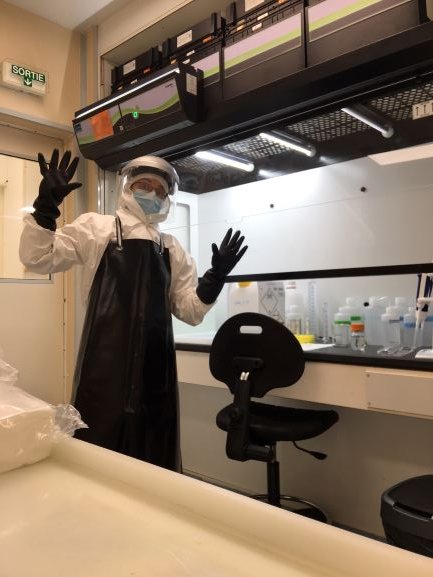Design and research engineers
The art of making a laboratory live
December 2020, the analytical platform AirOSol discovered its new coordinator, say responsible : a research engineer (Ingénieur de Recherche in French aka IR). Sophie has passed the IRD selection and therefore leaves our team. This is an opportunity for us to thank her and to underline her work since January 8, 2018 but also the immense work of the non-research staff in our team, actively participating in research.

Credit : Patrick Ginot
Design and research engineers are responsible for the technical feasibility of the research. They are the guarantors of the work - when the researcher is the parent, the engineer is his or her godfather or godmother - and become the very perennity of the research.
Often, they are entrusted with a precise mission with a more or less long contract : for Sophie, the development of a colorimetric method for measuring soluble species contained in ice water for continuous analysis. This instrument had to be adaptable to the CFA (Continuous Flow Analysis) of the PANDA analysis platform (see https://panda.osug.fr/?lang=en). Very quickly, these laboratory ants embrace wider issues. Their passion for their subject of study lead them to constantly improve what surrounds them, even if it meant carrying out major renovations to the handling areas. They take in hand new devices, their maintenance, the installation of another one... One then starts to confuse them with the history of the laboratory. Sophie became associated to the CFA just like Patrick, Nicolas and Elsa to the isotope laboratory, Grégory to gases and Camille to the development of laser instruments.
Then, their expertise led them to accompany budding scientists such as PhD students : they show them how the laboratory works, train them in the instruments, make them grow and finally let them go. Real moms and dads ! They are the ones who let you go to eat first to monitor the proper functioning of the experiment. They are the ones who answer the emails from a supplier during their vacations or when a colleague calls for help. They are the ones who order the equipment before anyone else needs it. They are the lab.
As Sophie pointed out, research support is like a Swiss army knife, providing a technical solution to a scientific question. Their role is to be in contact with science, facing it in its application, and putting it into action.
Thank you, therefore, to the "Swiss Army Knives" and especially to Sophie. Thank you for your work, thank you for PANDA, thank you for Science.
Congratulations again !
 The federation
The federation Intranet
Intranet







